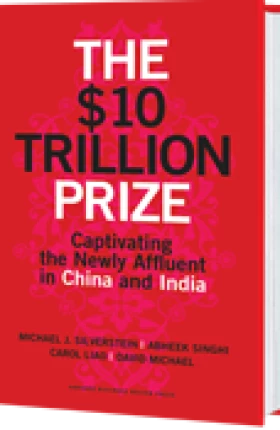One of the few things on which President Obama and Mitt Romney appear to agree is that it’s time for the United States to get tough with China, America’s number two trading partner.
They’ve got it wrong. America needs to better understand China, engage with China’s people and leaders, align its interests with China, negotiate quietly behind the scenes, and work to make China its partner in prosperity. Calling the Chinese “cheaters” serves no useful purpose. Protectionism would be a mistake.
Yes, China needs to play by the rules. That’s why we have rules. When the U.S. has a complaint—and there are many legitimate things to complain about—there are protocols and procedures for settling such disputes. And as President Obama admitted in the final presidential debate, the U.S. has been very successful in pursuing and prosecuting trade grievances.
But the relationship is bigger than that. While China and India may pose an economic threat to the unprepared, they also represent one of the greatest economic opportunities America will ever see.
The truth is that the U.S. and Chinese economies are now joined at the hip. Include India, Brazil, and a handful of other rapidly developing countries and you’re looking at America’s economic future.
At The Boston Consulting Group, we believe the economies of China and India alone will grow at an average annual rate of 8 percent over the next decade. Driving that remarkable growth is the rise of the middle class. China and India now boast some 300 million middle-class households—households with high aspirations, energy, confidence, optimism, and disposable income.
I've been carrying around a 500-page compendium of interviews we recently completed with consumers in China and India on their hopes, dreams, and wishes. They want what most Americans want—a house, a car, good schools for their children, and access to health care. They want the American dream.
Who’s better equipped to help them realize this dream than American companies?
Behind this already consumptive emerging middle class, ready to move up, are hundreds of millions of P-H-Ds: poor, hungry, driven 20-somethings, who outnumber U.S. youth by a ratio of 10:1.
Between 2010 and 2020, the Chinese and Indian people will consume some $64 trillion in goods and services, according to our calculations. By 2020, Chinese and Indian consumers will be spending some $10 trillion per year—more than triple what they spent in 2010.
Our most recent survey findings, released earlier this month, showed that 40 percent of Chinese consumers and 19 percent of Indians expected to increase their discretionary spending in the coming year compared to 9 percent of Americans, and 8 percent of British.
The booming consumer economy is only the first wave of opportunity. China and India are also in the midst of a massive infrastructure expansion to provide their newly empowered consumers with more and better roads, expanded telecom networks, reliable power supplies, more airports, and clean water. These projects will demand steel, cement, copper, electricity, oil and gas, precious metals, and coal.
Many Americans see China through an “us vs. them” lens: If they win, we lose. That perspective is wrong.
The story isn’t us vs. them; it’s us and them. Growth in China and India means opportunity for America, too.
Of course, not everyone will win. Some will act too slowly; make bad decisions; expect success to be handed to them; pay too little attention to their customers; and fail to recognize that emerging market volatility will produce both busts and booms.
But there remains a huge disconnect between the China-bashing rhetoric on the campaign trail and the reality of opportunity on the ground.
I’ve spent enough time in enough Chinese and Indian living rooms to understand the middle-class population’s hopes and dreams. They will become increasingly intolerant of corruption, pollution, and lawlessness, and will use their newfound economic and political power to force reform. They’ll buy brand-name goods and increase their investments in family, home, health, and education. They’ll use the power of the purse to carve out a world that fulfills their dreams.
America has no choice but to meet them in the marketplace. We have everything to gain. America needs to be curious, engaged, and ready to seize the day.
This article originally appeared in The Christian Science Monitor .






